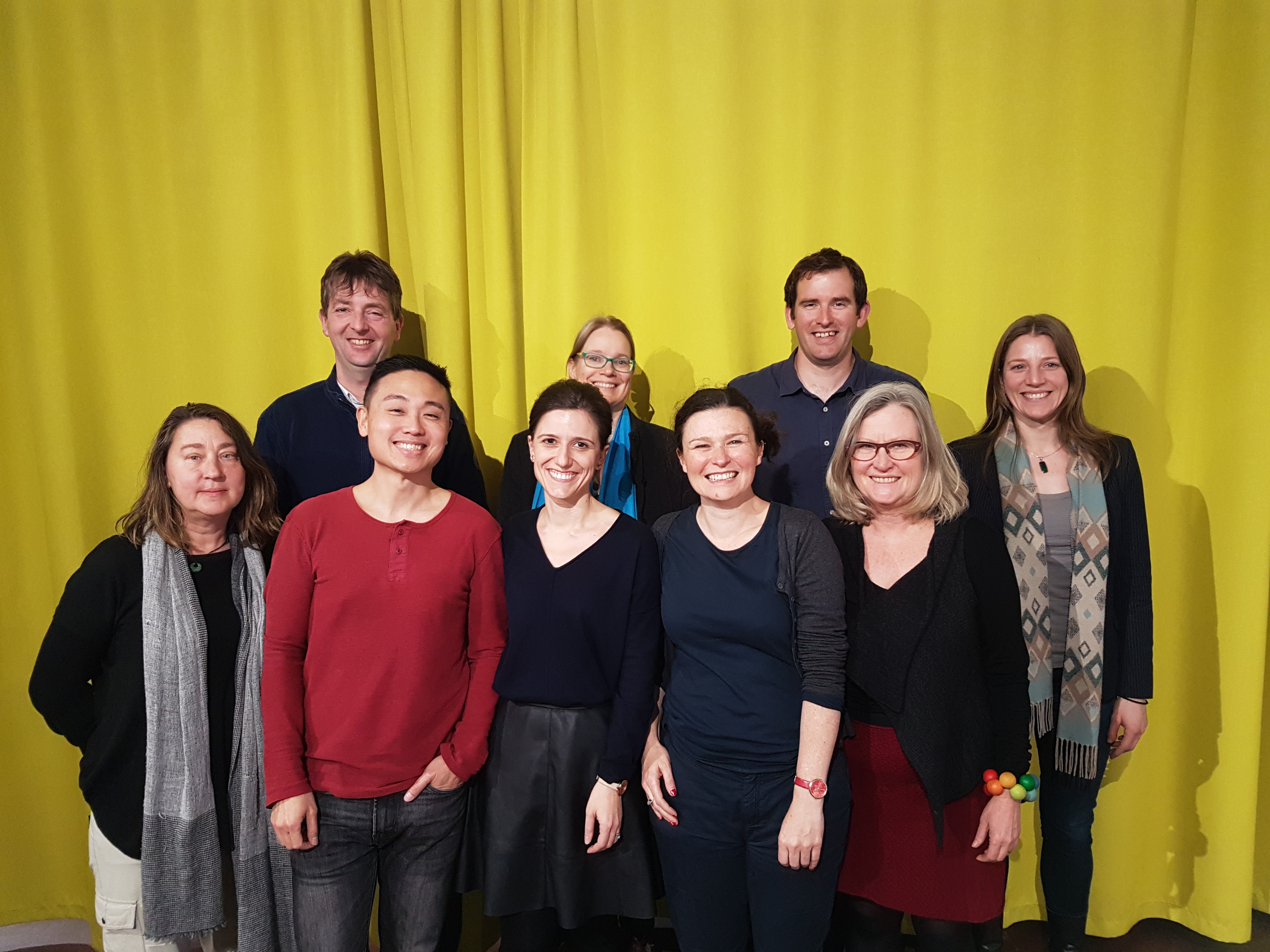How businesses can thrive
Thrivability in Business workshop – Melbourne University’s Thrive Research Hub, August 2017
Written by James Seow
I had the wonderful opportunity to attend the Thrivability in Business workshop organised by Melbourne University’s Thrive Research Hub in August 2017. Using the Eden Project as a case study, the workshop introduced participants to the Thrivability Competency Model, a framework of factors necessary for organisations to thrive. The workshop was led by Belina Raffy, Applied Improvisation and Thrivability thought-leader, and David Harland, Executive Director of the Eden Project and CEO of Eden Project International.
The workshop used Michelle Holliday’s “The DNA of Organisational Thrivability” model as a guide to considering an organisation’s capacity to thrive (https://ageofthrivability.com/). David related his experience at the Eden Project to this model.
Thrivability is defined as “the intention and practice of aligning organisations with how nature and people thrive.” The model invites us to look at an organisation from three perspectives: internal (Passion), external (Purpose) and the interface where the two connect and interact (Practical Play).
One exercise that unleashed my sense of humour and imagination is the “Evil/Good/Amazing” game. We started imagining how an “evil” café might run their business and what it would offer to their customers. Then, we discussed what a “good” café might do instead. The last stage involved us creating the vision for an “amazing” café – the ultimate goal of achieving good business profit, creating outstanding customer value and experience, respecting the environment, using sustainable resources and observing ethical and fair practices. Leaving the “amazing” stage at the end inspires ideas that we might not have thought of yet at the “good” stage.
Listening to fellow participants (I prefer to call them passionate change-makers) share their vision for more sustainable organisations, I gathered the following learning points that question an individual’s concept of organisational excellence.
- Conscious capitalism: Can businesses make money, respect the origins of their resources and do good for the community at the same time?
- Notice more, let go, use everything (by Robert Poynton): Instead of focusing on one target, can we be flexible and open to the opportunities and resources around us at any one time?
- The opposite of play is depression, not work: Make work fun!
- Biomimicry for solutions: Nature often inspires solutions. For example, what can a watering hole that brings animals in a desert together teach us about forming a community of like-minded people?
- Non-linear progress and processes: Think “out of the box” to look for solutions to existing problems. Reframe current issues and look at them from different angles. I recommend Edward De Bono’s book, Lateral Thinking, for this.
- Vision and “future truths” to build support and momentum: Sometimes, to convince prospective partners to collaborate with us, we have to behave as if we are already there. A “can-do” attitude and a strong conviction in one’s beliefs and goals help plans to materialise.
- No “but”; try “yes” and “and”: Instead of ignoring or negating what other people want and say, acknowledge their goals and build on that. Try saying, “YES, I see what you mean by this AND we can also….” Address your needs as well as the other person’s.
8. Who is in your team matters: I think this is the most important. Make sure you have the right people with the right attitude, potential and talent in your team. To paraphrase what David Harland, Executive Director of the Eden Project, said about his staff, if you were to cut in half all the people there, you would see “Eden” written inside every one of them. Get people who share the same values and goals with you on board.
Welcome to My Blog
Here is a basic blog layout with a right sidebar
Serena’s Story: “Thank you, WDP, for broadening my horizon and giving me new experiences.”
As an international student from China, Serena shares how WDP helped her come out of her shell while studying in Australia: Big Start for My New Life in Melbourne When I arrived in Australia to study my accounting/business law Master degree, I didn’t participate in...

Leta’s Story: “WDP truly enriched my life, broadened up areas of interest and opened up my mind.”
Leta Chen is an established Australian and dinner host from Melbourne who has found The Welcome Dinner Project has positively affected her life in more ways than one. Opening Home and Opening Heart In June 2015 a friend of mine forwarded an email prior to the...

Maisoon’s Story: “We really needed a program that would give us a chance to feel less embarrassed, less alien.”
An Honour to Meet Australian People When me and my family came to Australia in 2007, we felt like strangers who couldn’t express themselves. Back then we really needed a program that would give us a chance to feel less embarrassed, less alien. If WDP existed back...

Kate’s Story: “The Welcome Dinner Project was quite eye-opening for me.”
It's common for friendships to remain long after the Welcome Dinners are hosted. One particular example comes from Kate, who shares the privilege of getting to know one of her dinner attendees. A Privilege for Me I finally got around to contacting one of the newly...

Zaki’s Story: “We need these opportunities to bring humanity back.”
On the 3rd day of Christmas, we meet Zaki from Afghanistan. After struggling to feel a sense of community during his first two years in Australia, he was able to find it through The Welcome Dinner Project. A Feeling of Belonging In 2014 I met Penny Elsley and that...

Developing high quality facilitation skills – a deep dive with the Groupwork Institute.
Reflection by Angela Moran - WDP Victoria Central Hub Member On Saturday 9th December 2017 I was lucky enough, along with several other WDP volunteers, to participate in another wonderful professional development workshop thanks to Joining The Dots. The aim of the...


